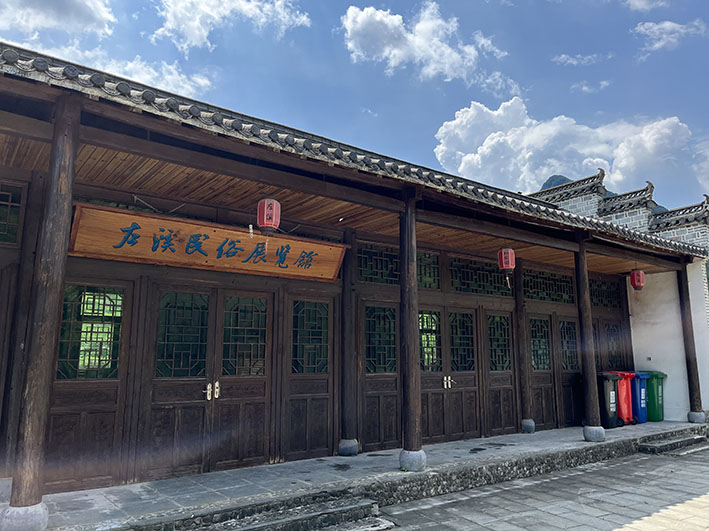For more than 30 years, we have 174 gold medals in Olympics, but Fields Awards 0 people. Why?
Author:Journal of China Science Time:2022.07.26
Text | Li Xia Gu Zhaoyi
Recently, the 63rd International Mathematical Olympic Contest (IMO) results were announced. The Chinese team once again got the first score of the group, and all the 6 players who participated in the competition were fully scored. This was the 23rd time that the Chinese team won the world's first.
After the lively, we need to consider two issues: First, China has so many smart children, not only in mathematics, but also in any other fields, but what is their later career development? Second, the topic of commonality is how to jump from a mathematical country to a math power? From the gap between the achievements of previous mathematics Olympics and the overall performance of Chinese mathematics in the international performance, people deeply recognize that this asymmetry is broken. So where is the problem?
In order to reflect the brilliant achievements of the Chinese Mathematical Olympics team at the macro level, the author has made a simple statistics. Since China participated in the Olympics for the first time in 1985, it has achieved a total of 23 total scores, which is far ahead of the ranking of countries around the world. During these 30 years, Chinese contestants won a total of 174 gold medals, with an average of 4.7 gold medals in a single competition. These data are the world's number one.
This can explain two problems: first, China's basic mathematics talents are very strong; second, there are many students with talents in mathematics in China.
Since they are all middle school students who participated in the Olympics, we may wish to assume that these contestants are fresh high school graduates. According to China's incentive model, most of these winners have been admitted by key domestic universities in advance, thereby embarking on a professional mathematical path. The winners who have been selected by layers and passing the level all the way have subsequently received the best vocational and academic training, and they should obtain gratifying mathematical results in the future.
But unfortunately, this expected result did not appear.
As we all know, there are two well -known international awards in the mathematics industry: the Phils Award (established in 1936, awards every four years) and the Wolf Mathematics Award (established in 1976, began in 1978). Obtaining international recognition indicators, the former stipulates that the winners must be under 40 years old.
In my country to participate in the International Mathematical Olympics in the late 1980s, many gold medal players emerging have not been able to stand out. Even if the 40 -year -old age restrictions set by the Phils Award, then from the 18th to 40 -year -olds who have won the gold medal of the Olympics gold medal to the age of 40 There are still 22 years. During the 22 years of academic output, how did the pride of these days complete the rising and falling journey from elite to mediocrity? What are the factors that affect their wings?
In the author's opinion, there are many reasons for this kind of only small flowers and fruits. The key is that our incentive mechanism has problems -only pay attention to short -range incentives and lack effective long -range incentives.
The reason why short -range incentives are popular because its results are in line with the principles of performanceism. For policy makers and policy audiences, the policy consequences are clear and visible, so as to resonate between the two parties: for policy makers For speaking, once the students get the gold medal, they will bring huge reputation to the entire school, which will affect the school's future upgrades, enrollment and publicity, and meet the requirements of political performance assessment. For participants, once the gold medal is won Pass.
Because the incentive target is clearly available, a consensus is formed between policy makers and participants: the recommenders provide huge social support for participants, and the participants go all out for visible benefits. This process is like this from the first trial and second test to the national training. The short -range incentive path is short, clear and clear, and the public is into the city. This also illustrates why Chinese middle school students are so enthusiastic about participating in the Olympics. In fact, this is the result of multi -party combination.
If short -range incentives are based on the utilitarian concept of short chain to design policy targets, then the long -range incentive incentive chain is long chain, which not only has short -term considerations, but also focuses on continuous support and respect for personal hobbies and ideals.
The problem is that the goal of long -range incentives is not quantified, and the income is not visible in the short term. This has led to serious risk disgust of policy maker and policy audience on uncertain consequences, so that individual hobbies and ideals make the realistic policy target.
Once these winners enter the university, they return to the short -range incentive environment dominated by utilitarianism. Those hobbies hidden in their hearts and ideal long -term goals are slowly swallowed and covered by powerful utilitarian culture around. Stimulus to control firmly, so that he is not tired from one small problem to another small problem. It is far from the deep and long -term issues unknowingly, and you do n’t even know what is an important problem. Living in the present becomes an recognized correct academic ideal and outlook on life.
In fact, doing things correctly and doing the right thing are two completely different things.
Academic long -term valueism just requires long -range incentive mechanisms. The construction long -range incentive mechanism needs to solve three problems.
First of all, the policy of incentive targets of the policy must be diversified to prevent a single short -range indicator. To give each academic preference and ideal space, in other words, people who like utilitarian options can stand on this incentive policy. At the same time, those who like idealist options can also live peacefully. Each sincere effort for life is worthy of respect.
I recently saw a video that introduced the life of Wei Dongyi, a young mathematician of Peking University. The simple and loving thought of love, and the idea of being born is -s not to interfere with him and let him live in his own In the math world. Suddenly thought that Confucius praised Yan Hui, "One meal, a scoop drink, in the lane, people are unsatisfactory, and they will not change their joy." Secondly, based on the principle of discounting, the principle of compensation for long -range incentives to incentives requires design income. That is, short -term incentive target returns are small, while long -range incentive targets have high income. This is also a key measure to break the asymmetric breaks between short -range incentives and long -range incentives. By calculating the calculation of incentive income, it spontaneously regulates people's preference for scientific research.
Third, set up a special zone for talent training. In the case of limited resources, in order to ensure that a new type of long -range incentive mechanism can be swallowed by the short -range incentive mechanism in the competition, a special zone must be established. Only in this way can a new type of incentive mechanism gradually improve and thrive in the special zone in the special zone growing up. In fact, this effort is also the price that must be paid for the establishment of a diversified incentive mechanism, otherwise the incentive model of the new life is difficult to survive. This is particularly important. In the social environment of utilitarianism, the means and goals have been seriously dislocated. Many people have taken the means as the ultimate goal.
For today, society only recognizes those who have Sifang/Five, but forget what kind of scientific achievements have they achieved. All kinds of "only" are nothing more than incentives. However, they have become the goal of many scientific researchers Nian Zezi today. Isn't this the typical performance of the scientific community under the short -range incentive mechanism?
The purpose of long -distance incentive is to cultivate a kind of patience and persistence in the scientific and technological circles, establish an academic idealism and heroism, and use long -term challenges to challenge difficulties, big problems, and even risk the risk of failure in this life. Progress strive to advance a little bit. The lonely persistence of the micro -individual is a macroex, which is a solidity of everyone to consolidate the scientific foundation and provide solid knowledge reserves for the overall knowledge of the scientific community. China has developed today. In the past, short -range incentive models have been unable to lead China's overall leap in the world's knowledge production market.
Back to the theme of this article, we may wish to see the nationality distribution of the Fields Award and the Wolf Mathematics Award, and see how the incentive mechanism of those mathematical powers is different from us. It is not difficult to understand the incentive mode in China. The significance of it.
(Author Unit: Institute of Science and Culture, Shanghai Jiaotong University)
"China Science News" (2022-07-26 The first edition of the original title "Short-range and Long-range Incentives of Talent Growing from the Olympics")
Edit | Zhao Lu
Capture | Zhihai

- END -
Young Writer Network: Visit the "Zuoxi Village" of Qianjiangyuan's first village (Song Xinyan)

Visit Qianjiangyuan Tou First Village Zuoxi Village(Text/Song Xinyan))On July 24, ...
Shandong Rizhao: Heavy rain strikes!Fire emergency rescue of the trapped people

At 00:23 am on June 27th, Rizhao City ushered in a large -scale heavy rainfall thi...